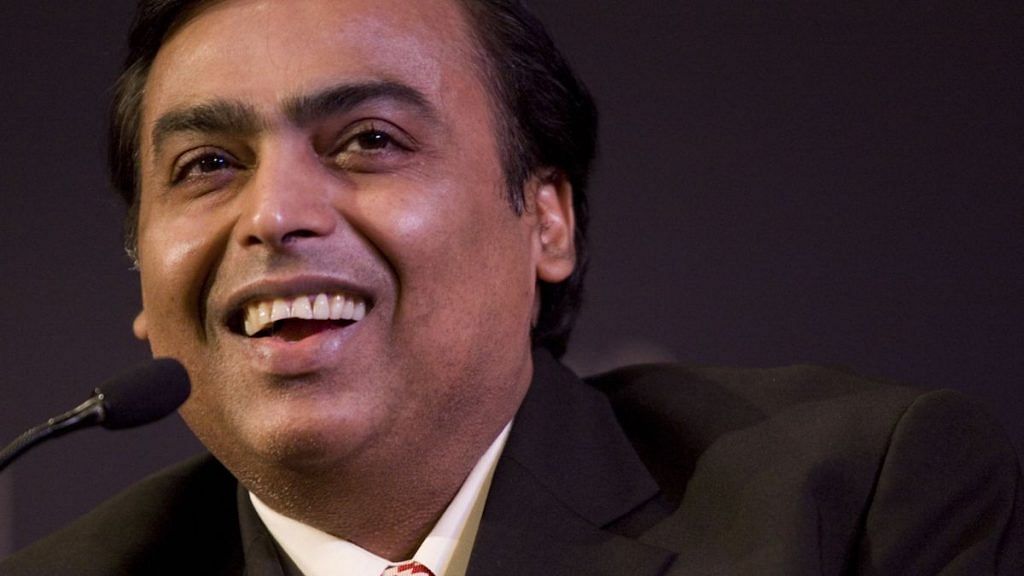Everyone loves to hate a billionaire. This is a fact of modern life. In India though, hate has a tendency to be translated into direct action, quite fast. We have seen some of it in social media discussions surrounding the farmers’ agitation against the recent farm laws — they started vilifying Adani and Ambani. In Punjab, protesting farmers took it a step forward when they called for the boycott of the establishment and services associated with these two large conglomerations. In some places, they even disabled a few cell phone towers “of a certain company”. Others asserted that the riches of such corporations were a consequence of corruption, sharp practices and some undefined skullduggery.
Till just a few years ago, Tata and Bata were the favourite targets; perhaps because their names rhymed so well. Such vilification is quite understandable because the popular belief is that people with money have made their fortunes through some fraudulent means. There is little appreciation that most people who end up being rich, are so because of their hard work and a single-minded drive to achieve ‘success’.
Allow me to point out the interconnections between the current anger of farmers in Punjab and their mistrust of any change.
Also read: Rahul backs farm protests but Amarinder ‘keen’ they end, deploys officials to broker truce
The trust deficit
Much of the farmers’ anger seems to be stemming from the idea that if allowed to set up mandis, corporates would cheat them, much like the evil moneylender and zamindar in old Indian films. In Punjab, even the passing of the Land Alienation Act(1901), which limited the ownership of land only to ‘agricultural tribes’, did not assuage these fears. There is also this belief, nurtured since Independence, that weak and inept governance ensures rules are only meant to favour the powerful. In modern societies, however, formal organisations/entities are not free to cheat and exploit at will.
Our starting point to understand this culture of distrust should be the free-riding Indian. India is a society that loves free riding more than it appreciates fairness, even in the most routine of transactions. Just stand by the local greengrocer to see how many of us insist on being given a free bunch of dhania (coriander)— a feeling that does not translate into insisting that the vegetables on sale be properly weighed, without water being sprinkled on them to increase their weight. The fact remains that life seldom offers free lunches. Few of the happy customers realise that the free dhania is in lieu of their willingness to buy water-soaked vegetables.
Business deals that are successful and last, are built on creation of real and fair value. And yet in India, there is widespread currency for the idea that the businessperson (as also the politician) is the ultimate ‘fixer’. We completely ignore the hard work done systematically over many years and the trust it creates.
Also read: The problem Rahul Gandhi has created for Amarinder Singh in Punjab by backing farmer protests
The stereotypes
Things that are believed to be real often have real consequences. The conniving businessperson, the corrupt bureaucrat, the bumbling police person have been stock images in our public discourse. Such stereotypes lead to a comprehensive atmosphere of mistrust. The mistrust is magnified by the inept creation of laws, rules and regulations— the social infrastructure that holds modern society together.
Unfortunately, in India, an atmosphere has been created where informal ways of functioning overwhelm the society and governance infrastructure. And the frequent petty corruption that this generates is not only tolerated but appreciated. The avoidance of taxes by giving no formal receipts for merchandise sold remains as much of a corrupt practice as a government servant using the official car for private work, or an Arhatiya under-weighing the farm produce. Yet, such behaviour remains widespread even among those who claim to fight corruption. The trouble is that when such behavior becomes the norm, distrust becomes the norm too, because everybody expects to be cheated by everyone else. Those who succeed through fair and trustworthy practices are then looked at with great suspicion.
Trust and truthfulness are, of course, non-negotiable. We know that formal businesses that hope to survive routinely follow rules. No doubt many of them indulge in creative bookkeeping for the occasional sneak profit. But if they were to do so on a large scale and continuously, they would collapse. The failure of Enron Corporation and of Satyam Infotech are only a few of many such examples that have been fully investigated to indicate that businesses built on cheating don’t survive. Businesses that succeed over time do so because they created some value for society; not because of corrupt practices.
Social distrust and stereotypes of behaviour can be a serious drag on economic growth. The only way out is to craft good rules and follow these.
Meeta Rajivlochan is an IAS officer and author of Making India Great Again: Learning from our History. Views are personal.
